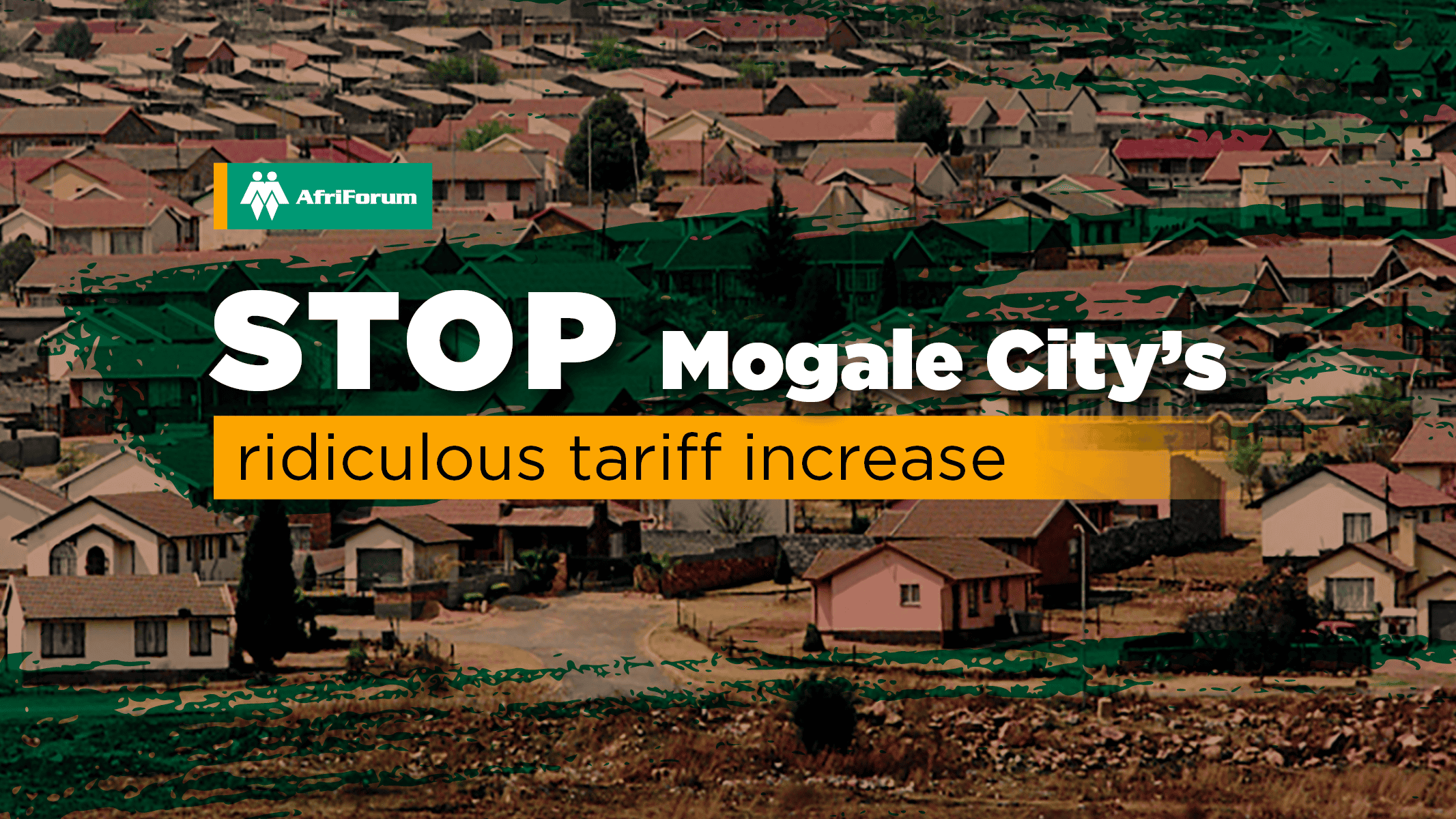AfriForum’s fight against Mogale City’s ridiculous power tariffs continues in High Court
The court battle between AfriForum and the Mogale City Local Municipality’s excessive increase in electricity tariffs introduced in the middle of last year, will continue in the Pretoria High Court with a full bench of judges. In the first court judgment in February, the court ruled in the Municipality’s favour and found that the National Energy Regulator of South Africa (NERSA) be added as a party to the case and dismissed AfriForum’s application – to overturn a court judgment approving the implementation of a new electricity tariff structure for Mogale City. AfriForum brought an application for leave to appeal against this judgment but the court once again dismissed the application. AfriForum subsequently approached the Supreme Court of Appeal for direct access so that the case could be heard further, after which the application for leave to appeal was granted on 30 June.
The application originally requested that the case be heard in the Supreme Court of Appeal. Although the appeal has been granted, it will be heard in the High Court.
The case arises from the Municipality’s unilateral decision to implement increasing block tariffs for the 2024/2025 financial year. This was done without giving the public the opportunity to challenge this new tariff structure at the annual Integrated Development Plan (IDP) public hearings. The Municipality has applied a fixed tariff structure in the past and during last year’s public hearings merely announced a 12,7% increase and never mentioned the introduction of the increasing block tariff structure. With this structure, tariffs at certain usage levels increased by almost 30%.
“Although this court case has been dragging on for several months, it remains an important principle for AfriForum to establish in the courts. Under no circumstances can municipalities be allowed to make misrepresentations during public hearings and then implement something completely different behind closed doors in council meetings,” says Deidre Steffens, Advisor for Local Government Affairs at AfriForum.
“The implementation of this tariff structure has placed enormous financial pressure on residents and local businesses. It is unacceptable that consumers are being unfairly charged with tariffs that do not even comply with legal guidelines.”
In the first court appearance, AfriForum provided clear evidence to the court which included sworn statements from residents who confirmed that the Municipality did not communicate the new tariff structure during community meetings. AfriForum went even further and provided evidence of the Municipality’s PowerPoint presentation during the meetings which only mentions a 12,7% increase and again does not communicate anything about a change in tariff structure.
The Municipality’s legal team could not provide any evidence that it communicated this change in tariff structure (and its effect).
The Municipality only argued that NERSA had approved their tariffs and the new tariff structure, therefore they could continue to implement different tariffs than those presented to the public. “This argument almost makes it worse – it means that the Municipality applied for a new tariff structure, already had the figures for it together but chose to lie to the community and present something different,” says Steffens.
The Municipality’s legal team also argued that the case could not be heard further because NERSA has an interest in the case and was not added as a respondent to the original application.
“AfriForum is of the opinion that NERSA does not have a direct interest in the case and that NERSA’s interests would not be harmed if the court were to rule in AfriForum’s favour. We therefore continue to appeal the ruling,” concludes Steffens.
AfriForum will continue to protect communities against the bullying behaviour of municipalities that make decisions that impact them negatively.











